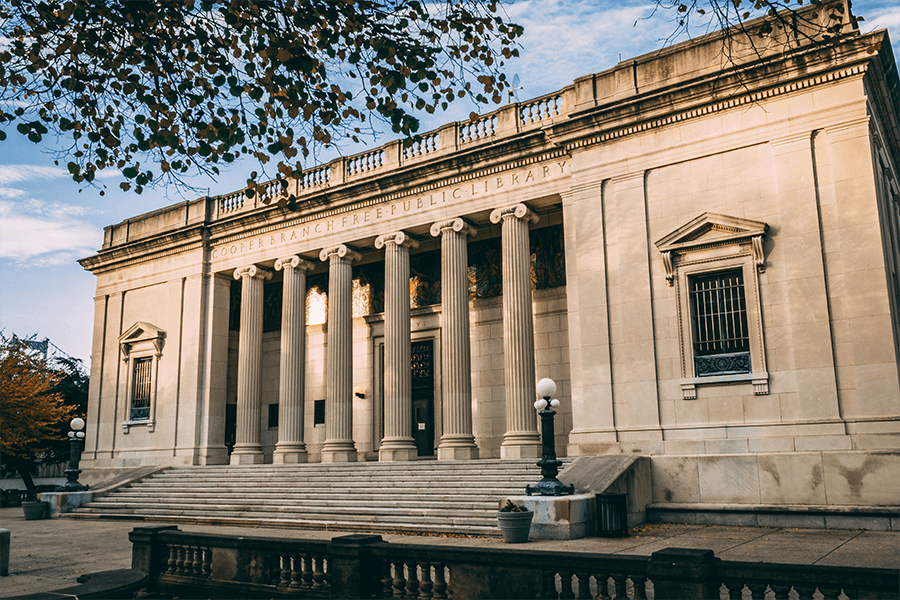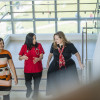This Century-Old Library Is Now Home to a Cutting-Edge Digital Program

Inside a 102-year-old library at Rutgers-Camden, students and faculty have gathered to analyze an intriguing trove of artifacts — not old books or archeological treasures, but technology that used to be at the forefront of the digital revolution. Old-school video games and now-defunct websites like Friendster might not seem like rich areas of study, but at the Digital Studies Center, they form an essential area of research and learning.
Currently more than 50 Rutgers-Camden students major or minor in Digital Studies in addition to more traditional degree programs. Students are combining Digital Studies with everything from English and computer science to history, criminal justice, political science and childhood studies.
“Anything you could imagine in the College of Arts and Sciences can be plugged into digital studies,” says Jim Brown, co-director of the Digital Studies Center. “The idea is not just for students to learn how to make digital tools, but also how to study digital technology from a historical and cultural perspective.” The interdisciplinary approach enables students to get a deeper understanding of how digital technology is transforming every aspect of today’s economy. Graduating with such a broad set of skills also lets employers know that they are prepared to tackle whatever new challenges may arise.
As we learn more about how these digital tools and their underlying algorithms affect not just our economy but how they affect individuals and the communities who use them, there is an ever-greater need to understand the larger, often unexpected implications of these trends.
“The history and ethics piece of this is important,” Brown adds. “It’s not just, ‘How does this thing work?’ or ‘How do I make something with this?’ but ‘Should I make this? Will it do harm?’”
As part of the program, students roll up their sleeves for hands-on projects that include videos, podcasts and multi-platform storytelling experiments. Classes might work on devising ways to salvage footage shot on a camera that uses an extinct media format while discussing what the impact is on the historical record when media formats evolve. Or studying how the gaming community purposefully modifies controllers for optimized performance, and how it relates to usability and ownership.
The physical nature of the projects supports the center’s goal of preserving older technology, but it also teaches valuable, practical lessons. The underlying issues at hand affect everyone — not just academics. “Not only do students know how to use specific tools, but they understand why we use these tools and larger implications,” explains Robert Emmons, Brown’s co-director.

This spring, the center will invite both academics and everyday tech users to explore similar questions at its annual Rutgers–Camden Archive of Digital Ephemera (R-CADE) conference. The year’s theme, repair, will question how we maintain (or don’t maintain) a digital presence.
The conference will take place from April 23-24 at the Digital Studies Center’s home base, the historic Cooper Branch Library at Johnson Park. “You walk in, and what you see are lots of flat screens, game systems and computers,” Brown says. “It’s an interesting juxtaposition.”
In a fitting twist, phonograph engineer Eldridge R. Johnson’s innovative “talking machine” enabled the library’s creation more than 100 years ago. The frieze-adorned building now homes technology worlds away from that initial invention, but even a century later it remains a center for the community to come together, exchange ideas and look to what’s next.
Learn more about the Rutgers-Camden Digital Studies Center, including the R-CADE conference, here.
This is a paid partnership between Rutgers-Camden and Philadelphia Magazine